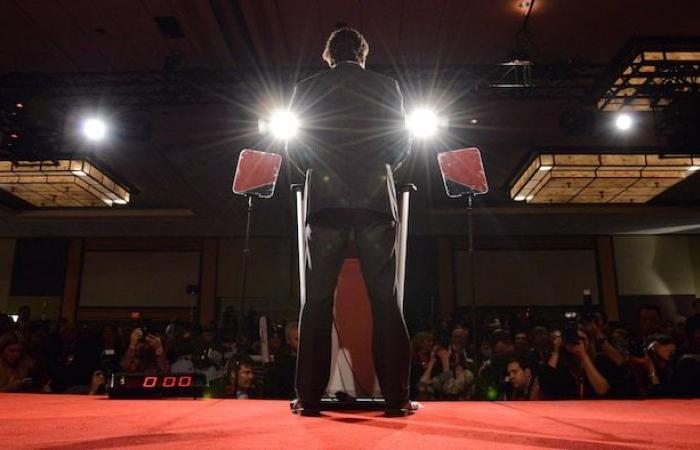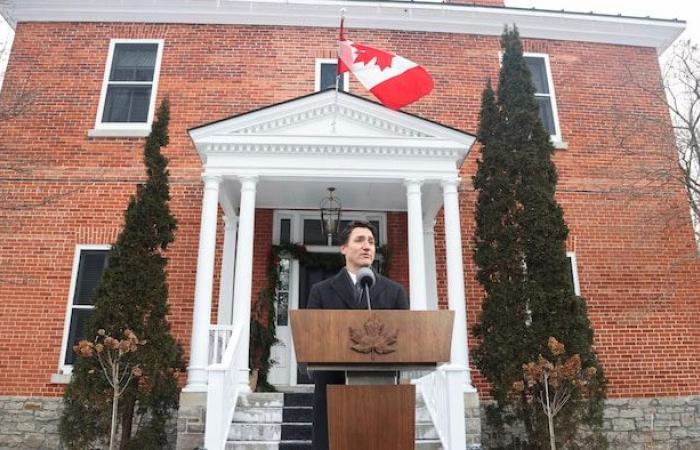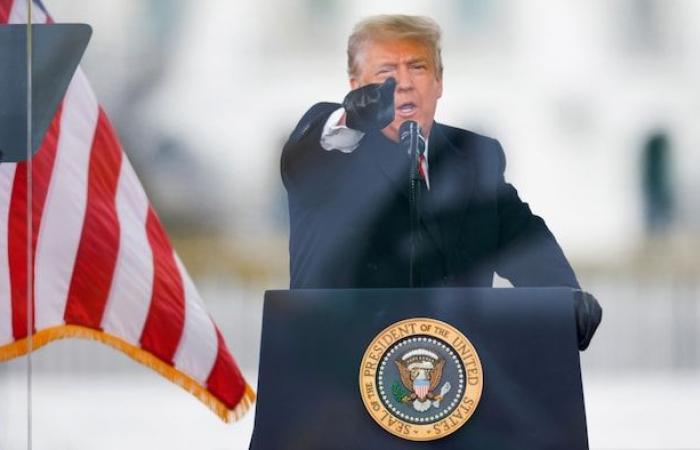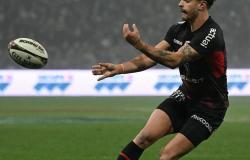It took a majority of his MPs to push him out of the ring, but Justin Trudeau finally hangs up his boxing gloves.
The battle was still going on for the one who, when he bowed out on Monday, still described himself as fighter
. Except that he had become the only one to believe that he was best placed to win against Pierre Poilievre in the next elections.
Many in the liberal ranks breathe a sigh of relief when they see him leave. They will have to follow this sigh with a deep breath, because they are about to plunge into a period of intense vulnerability… not only for their party, but also, for the country.
After being elevated to the rank of savior when he took charge of the Liberal Party in 2013, Justin Trudeau has become over the years the scapegoat for everything that is going wrong in Canada.
As long as he was there, he was the one getting the slaps.
Now that he has announced that he will hand over the reins of his political party following a leadership race whose rules are still unknown, the traps facing the Liberals will multiply.
The first major challenge will be that of unity. The Liberals have an unenviable reputation for making jokes behind the scenes.
Open in full screen mode
Justin Trudeau was seen as the savior of the Liberal Party of Canada by many activists when he took the reins on April 14, 2013. (Archive photo)
Photo: The Canadian Press / Sean Kilpatrick
When he was elected leader in 2013, Justin Trudeau predicted an end to internal rifts. I don’t care if you’re a Chrétien liberal, a Turner liberal, a Martin liberal, or any other kind of liberal.
had launched the young chef. The era of clans within the Liberals ends now, this evening.
With his departure, will we see the birth of a Freeland clan? A Carney clan? A LeBlanc clan?
With a leadership contest, divisions within the party will be more visible and, potentially, more damaging.
Refreshing the liberal brand
Whoever takes the place of leader will also have before them the titanic task of erasing the name of Justin Trudeau from the Liberal brand, while the two have become practically synonymous.
After years of bad luck, unable to take off under the leadership of Stéphane Dion or Michael Ignatieff, many Liberals saw Justin Trudeau as the savior who would resurrect the party from its ashes. The enthusiasm for him was so great that it was tempting to bet everything on the same horse. Canadians’ attention has focused on the leader, leaving little room for dissonant voices within the party.
After making the party emerge from the ground, will Justin Trudeau be its gravedigger?
Announcing that he would resign when a replacement is found for him on Monday, the Prime Minister insisted that his party was an important institution in the history of our great country
.
However, his successor will have little time to give a new face to this institution
. The leadership race looks set to be very short, and the country could be plunged into elections as early as the end of March.
Open in full screen mode
Justin Trudeau ended the suspense over his political future by announcing to Canadians that he will step down as Prime Minister and leader of the Liberal Party of Canada as soon as the party has a new leader.
Photo : Reuters / Patrick Doyle
Maneuvering with an extremely tight deadline will become the third challenge for a party whose cup is already full.
The three leaders of the opposition parties have sent a clear signal that they do not intend to give any gifts to whoever will take Justin Trudeau’s place. On the contrary: they all clearly expressed their intention to try to defeat the Liberal government at the first opportunity. So much so that elections could be called when work resumes at the end of March, by a vote on budgetary appropriations or on the Speech from the Throne, for example.
So, not only will leadership candidates have only a few weeks to try to convince liberal activists that they are best placed to lead them, but the winner will likely not have time to prove themselves in Parliament before of having to try to win the hearts of the electorate.
But the main challenge facing the Liberals is one much bigger than themselves: that of managing the relationship between Canada and the United States, less than two weeks before the arrival of Donald Trump in the White House.
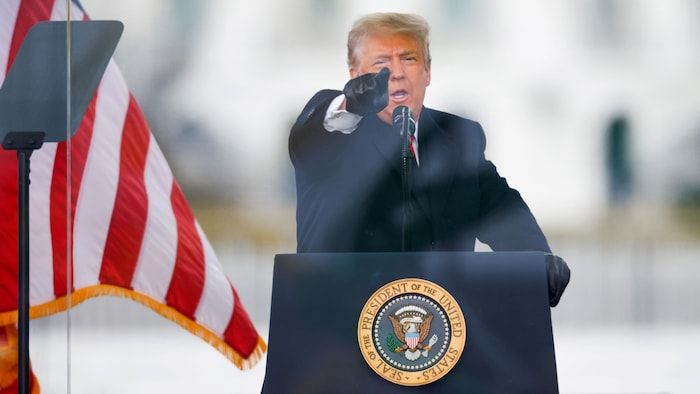
Open in full screen mode
President-elect Donald Trump has once again raised the idea of making Canada the “51st state”. (Archive photo)
Photo : Reuters / Jim Bourg
The president-elect did not waste time and took advantage of Justin Trudeau’s announced departure to once again raise the idea of making Canada the 51st American state
.
If the threats made by Donald Trump shortly after his electoral victory are carried out, Canada will be hit by the end of January with customs tariffs of 25% on everything it exports to the United States.
The tariff war promises to be all the more complex as ministers who have forged relationships with their American counterparts may have to put their portfolios aside during the leadership race.
According to our information, the current Minister of Finance, Dominic LeBlanc – who was present at the famous dinner at Mar-a-Lago at the end of November – is seriously considering taking his place on the starting blocks. He received numerous calls from ministers, deputies, organizers and provincial party leaders and his thoughts were advanced.
Chrystia Freeland, who led the renegotiation of theALENAfor his part, multiplies the calls to sound out his support.
At the dawn of a period of great uncertainty, Canada is placed in a weak position. It is a transitional government which will have to face a bellicose president. A president who, precisely, swears by force.

